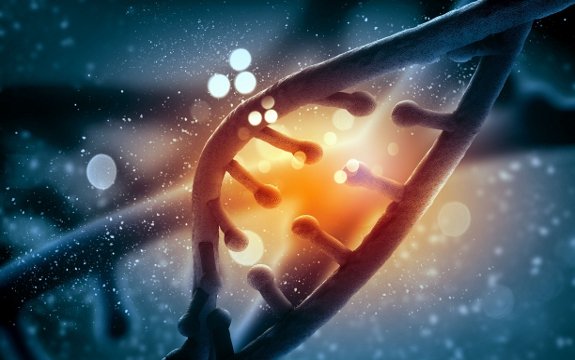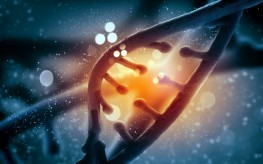Blame Genetics? ‘Flawed Genes’ Cause Less than 1% of All Diseases

 Obesity, diabetes, heart disease, and even cancer may very well “run in the family”—meaning it’s a trend within your immediate ancestry—but our growing urge to call something inherited is not doing anyone any good. You see, the health concerns we often blame on our parents (or grandparents) are usually within our control. As a matter of fact, it’s estimated that less than 1% of all diseases are caused by flawed genes.
Obesity, diabetes, heart disease, and even cancer may very well “run in the family”—meaning it’s a trend within your immediate ancestry—but our growing urge to call something inherited is not doing anyone any good. You see, the health concerns we often blame on our parents (or grandparents) are usually within our control. As a matter of fact, it’s estimated that less than 1% of all diseases are caused by flawed genes.
The Human Genome Project, which effectively “mapped” the human genetic code, was completed in 2003. And in that project, scientists learned they were wrong about some things. One of those things was the number of genes in the human DNA. While they expected several hundred thousand—one gene for every protein, in essence—they found only 20,000 to 25,000.
As GreenMedInfo.com aptly explains:
There are not even enough genes in the human body to account for the existence of the basic protein building blocks that make it possible, much less explain the behavior of these proteins in health and disease states!
The “blueprint” model of genetics: one gene -> one protein -> one cellular behavior, which was once the holy grail of biology, has now been supplanted by a model of the cell where epigenetic factors (literally: “beyond the control of the gene”) are primary in determining how DNA will be interpreted, translated and expressed. A single gene can be used by the cell to express a multitude of proteins and it is not the DNA itself that determines how or what genes will be expressed.
It’s also important to consider that many foods or activities could also spark an alteration in DNA. For example, some GMO wheat has been shown to silence human genes, potentially leading to an early death. And on the other end, exercise could powerfully change your DNA in just minutes.
So what does this mean for disease and health? That a number of factors contribute to how a gene will be expressed, or if it will. Among these factors, many are within our control. Our environment, what we eat, breathe, and come in contact with will all determine our eventual health and disease.
For example, cystic fibrosis (CF), a “genetic” disease, is caused by the defective expression of a particular gene—known as the Cystic Fibrosis Transmembrane Conductance Regulator (CFTR). The defective expression, scientists have learned, can be “triggered” by nutritional deficiencies. Further, this particular gene has been shown in the lab to experience partial or even full correction when exposed to the beneficial compounds known as phytochemicals in cayenne, soybean, and
Accepting responsibility for disease existence can lead to prevention. What I mean is that when you recognize your own active role in the health of your body, you embrace the power to change it. We can no longer blame our “genes” for what ails us. Armed with this knowledge, what will you do about it?

I can hardly believe that phytochemicals like tumeric, soybean and cayenne can correct or turn on/off the gene that causes Cystic Fibrosis.
I would love to know how a person with such a horrific disease would go about modifying Cystic Fibrosis, taking these phytochemicals. How much should the person take? How does the person take it ?
Are there other hereditary genetic diseases that can be reversed?
My family has been plagued with adrenoleukodystrophy for generations and there is NO cure.
Can epigenetics help with this terrible disease?
I would truly like to know if the writer of the article would have the answer.
These "imperfections" and "mutations" are also known as "nature." Sometimes they do good and other times can do not so good. It's all about that natural variability we have that gives us an edge for when times get tough. You can think of it as nature providing forks in the road. A mutation is like a weed. We can't necessarily call it good or bad until we decide to pay attention to or use it. I'm not discussing malformations caused by radiation. But then even that can follow the same logic. If exposure to radiation can cause a person to have a third eye, is that good or bad? Survival of the fittest will tell.
What am I getting at? We don't need to completely breakdown all genes to determine if they are good or bad. As researchers, they live in a 'publish or perish' world and feel the need to get into the weeds ad nauseum on every subject. Even unnecessarily.
Good luck with the research and please remember to keep the big picture in mind. Many people studying these issues often miss the forest for the trees.
Maybe 1% is low but environment under our control is key
Ann, start by looking up the 80/10/10 diet. There is a book by Dr. Douglas Graham. Good luck to you and your family.
RFD
Actually, that isn’t what the 1%means. We now know that if someone has the “breast cancer gene” they have a 50/50 chance of developing breast cancer.